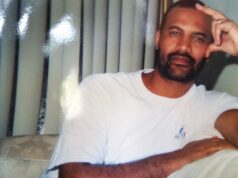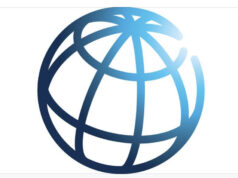ADDIS ABABA, Ethiopia — Ethiopia’s prime minister stunned the country Wednesday by announcing the release of imprisoned politicians and the closure of a notorious detention center to promote political dialogue.
It is a bold move for this U.S. ally and bulwark of regional stability that has repeatedly been criticized for its heavy-handed treatment of the opposition. Ethiopia has been plagued by years of ethnic unrest as well as rising differences within the ruling party.
At a news conference with leaders of the four parties making up the ruling coalition, Prime Minister Hailemariam Desalegn said that members of political parties under prosecution will be released and that those convicted will be pardoned “after proper investigation” to create a “better national consensus and expand democratic freedoms as the constitution permits,” according to a statement released by his office.
The Maekelawi detention center in downtown Addis Ababa will be closed and turned into a museum, the statement added. The closure of the prison and the release of the inmates — many of them prominent opposition figures — have long been demanded by the opposition.
“It is a time defying institution which has been around for more than half a century and has been used (and abused) for the same purpose: to detain, without due legal process, people alleged to have committed grave crimes against the state, the people and the constitution,” said a 2016 editorial in the Addis Standard. The paper described the site as a state-run “torture chamber” unbefitting a government that describes itself as democratic.
Human Rights Watch and other rights groups have accused Ethiopian detention centers of torture and other violations, and there was cautious optimism that the announcement might represent a shift.
“Time will tell whether this signals a turning point in the government’s tolerance of dissenting voices, but the release of political prisoners and closure of such an abusive detention facility is welcome news,” said Felix Horne, senior Ethiopia researcher at Human Rights Watch.
The government has been under extreme pressure since members of the Oromo community, the country’s largest ethnic group, launched protests in 2015 over what they called their marginalization and lack of political influence. The deaths of at least 1,000 people and attacks on foreign businesses prompted a 10-month state of emergency that ended in August.
The United States has repeatedly expressed concern about the violence and the government response and urged greater democracy.
New protests erupted in the past months at universities, and there were reports of security forces killing more people in parts of the country.
At the same time, clashes between the Oromo and neighboring Somali communities claimed hundreds of lives and displaced hundreds of thousands.
The government has been holding a dialogue with opposition parties. But most of the parties were seen by many as too close to the government, and some prominent politicians such as Merera Gudina and Bekele Gerba were in jail.
Previously, government policy seemed aimed at tightening control rather than allowing more political voices, said Beyene Petros, chairman of the Medrek coalition of opposition parties.
“We have been pushing for this as a confidence-building measure that they should release prominent political prisoners. That has been our incessant call,” he said. “I’m not sure if they are now responding to this and so are going in a different direction.”
The decision came after 18 days of talks within the ruling Ethiopian People’s Revolutionary Democratic Front coalition, which includes parties representing the Oromo and other regions. Increasingly, these parties have become more assertive and may have been instrumental in pushing for the change.
Analyst Seyoum Teshome, who was imprisoned for some time, said that it was a good first step but that many more things had to happen to put the country back on the democratic path.
“The anti-terrorism law, the media law, all these things must be reformed,” he said. “The regime is almost losing its legitimacy . . . They need to make drastic changes in all political aspects, and the constitutional democracy that has collapsed must be re-erected.”
/Washingtonpost/


























In one way I welcome this gesture but with a grain of salt. You remember 1984. That demonic Mengistu released thousands of prisoners on the occasion of the tenth anniversary of the date he hauled his stinking boot into the palace. But on the same night he had sent hundreds to their gallows where many of them were brutally strangled to death. But this time a different situation where the current regime is being assaulted by the two pillars of the society-The glorious peoples of Oromia and Amhara. It is being besieged on many fronts in those two regions. There is ‘golden race/generation’ to save the day over there. What I am hearing lately from my relatives is stark. They have shops in the capital which seems to be dead quiet. But when they travel outside the capital, say Ciro(Chiro) or Habro district is a different story. So they are all wondering how long the capital will stay ‘insulated’ from the complete breakdown of security just a stone throw away. That is very worrisome for them and me also.